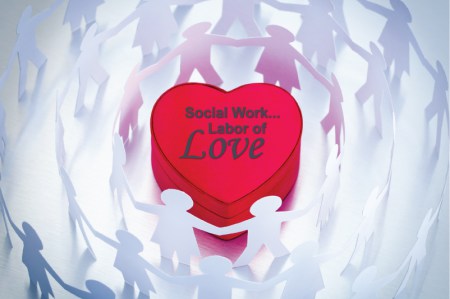Written by: Shauna Brooks, MSSW; Principal Investigator, National Safe Place Network
This was supposed to be a 4-day weekend for me - Labor Day holiday Monday, and a vacation day Friday to bring home a newly adopted pet and allow some time for her to adjust to her new environment. This is the first time in almost 18 years my partner and I have added someone to our little family. We have talked about it and delayed and negotiated our preferences for so long. Kim wanted someone small, and I really like big dog personalities. Kim wanted a fur family member to provide me with emotional support. I also wanted a dog to help me be more active. After months, even years, we just couldn’t push it back any longer.
The timing was, well… not ideal. Kim is grieving the loss of her mom and dealing with difficult family in the midst of probate and estate issues which is weighing heavily on her. She’s also unappreciated and disrespected at work despite a tremendous work ethic and high performance expectations for herself. I love my work (which we’ll discuss more in just a moment), and three deadlines for major projects are converging this week, so there is some stress on my end as well.
We had impressions of the shelter dog formerly named Trixie, whom we now call PJ. True, we each only met her for about half an hour (separately because of incongruous work schedules). But the people who rescued her shared their observations, and her character and temperament were evident in pictures and in person. She was thoughtful, almost pensive in photos. She ambled around on a slip leash without pulling. Taken outside, after wandering and sniffing about an 8’ by 8’ patch of grass, she lay down next to me in repose, offering her belly for a good rub without any hesitation – a mild-mannered young adult.
After a very sedate first night, spending the bulk of her time sleeping in a crate she instantly recognized as her own, her authentic personality began to emerge. The great news is she seems to be comfortable enough to come out of her shell. The more complicated discovery is that she is, in truth, a giant puppy. She is brilliant and obstinate and could clearly jump our fence without even trying very hard. Instead of running, she leaps like a deer. We are working hard at consistency, patience, establishing communication, and teaching her boundaries, expectations and the big fun that rewards positive behavior. Just consider for a moment the persistent and intensive attention this requires – literally every minute when she is not sleeping. Thus, my grand plans of putting in some extra hours over the long weekend to help get ready for a very busy week were entirely shot.
But this is the reality of family. Life is work. Life is messy, and balancing priorities seems impossible sometimes. I know these circumstances could look very different in someone else’s life. Perhaps another person would have absolutely clear priorities that illuminate a path of certainty. Perhaps someone who hasn’t benefited from the privilege that comes with being white or from having access to educational and employment opportunities I’ve had might face an unmanageable burden. A person who isn’t as lucky as I am to share their life in unconditional love with a committed partner might find the experience lonely and overwhelming. These are the dynamics of my environment. My family, friends and co-workers provide a network of support.
Because partnering, parenting, working, negotiating, homemaking, studying, advocating, teaching, learning, trying, failing, surviving, striving, and everything else in life is hard work, it is humbling that people share their experiences with us. It is a challenge to be worthy of that trust, to listen, to set aside judgment, to acknowledge personal bias, and to demonstrate respect to show people an example of how they deserve to be treated regardless of their circumstances. Our work is both harder and more critical than ever in the culture of hate that is pervading our nation right now.
Social work is labor AND love. It is doing AND being. Social work is having empathy AND boundaries. We facilitate individual well-being, healthy communication, supportive relationships, and thriving communities. We advocate for people served by public systems. We fight for social justice and support policy solutions. We work in schools and churches and community agencies. We serve youth, families, teachers, students, veterans, and people experiencing homelessness, poverty, mental illness, and hospice care. I have the privilege of serving people who serve runaway and homeless youth. And for me, it is absolutely a labor of love.





